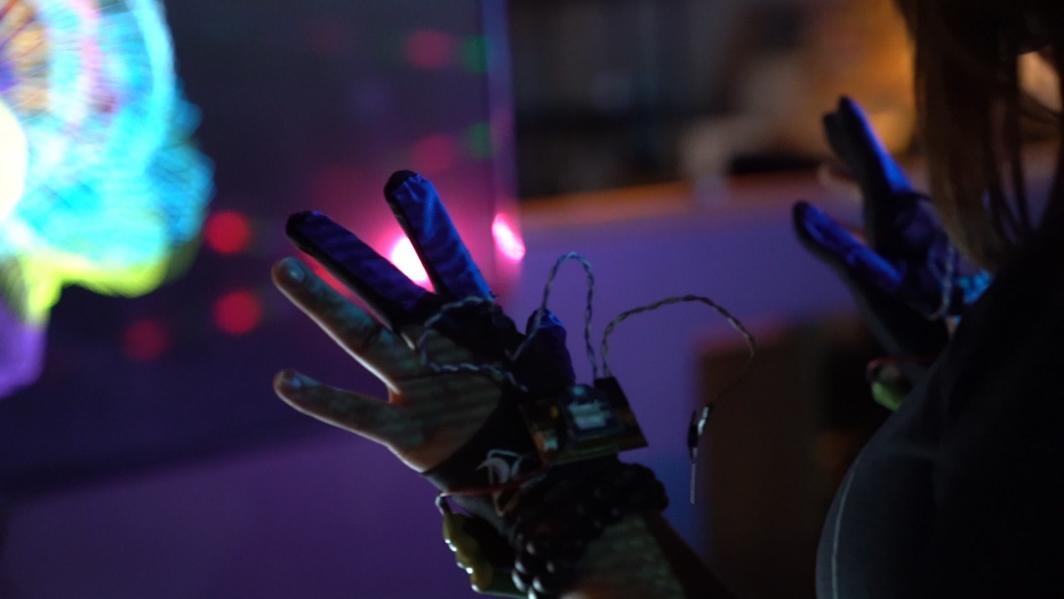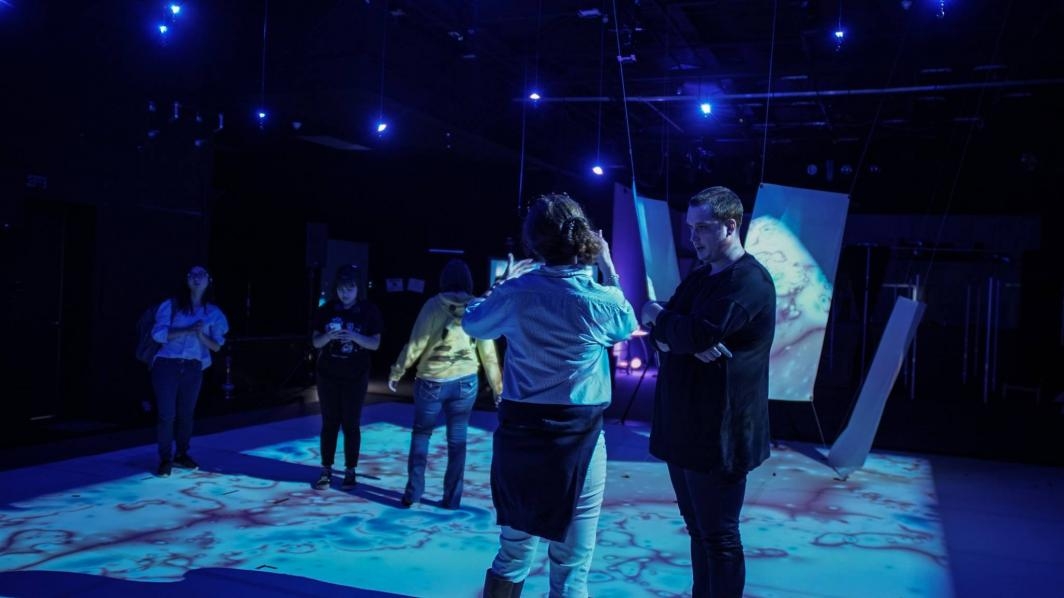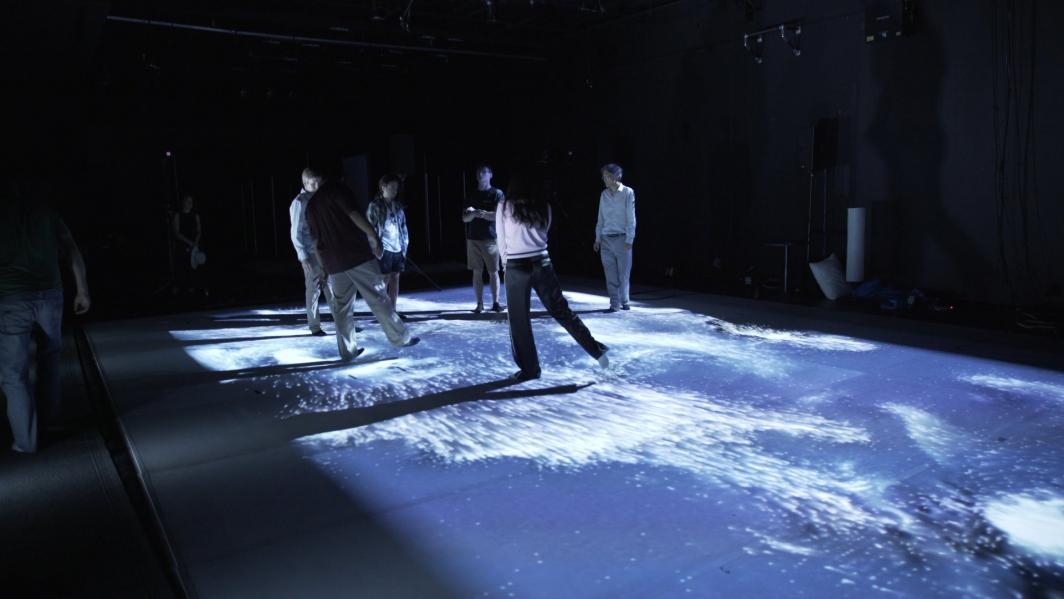ASU to host top-tier international conference on tangible and embedded interaction design
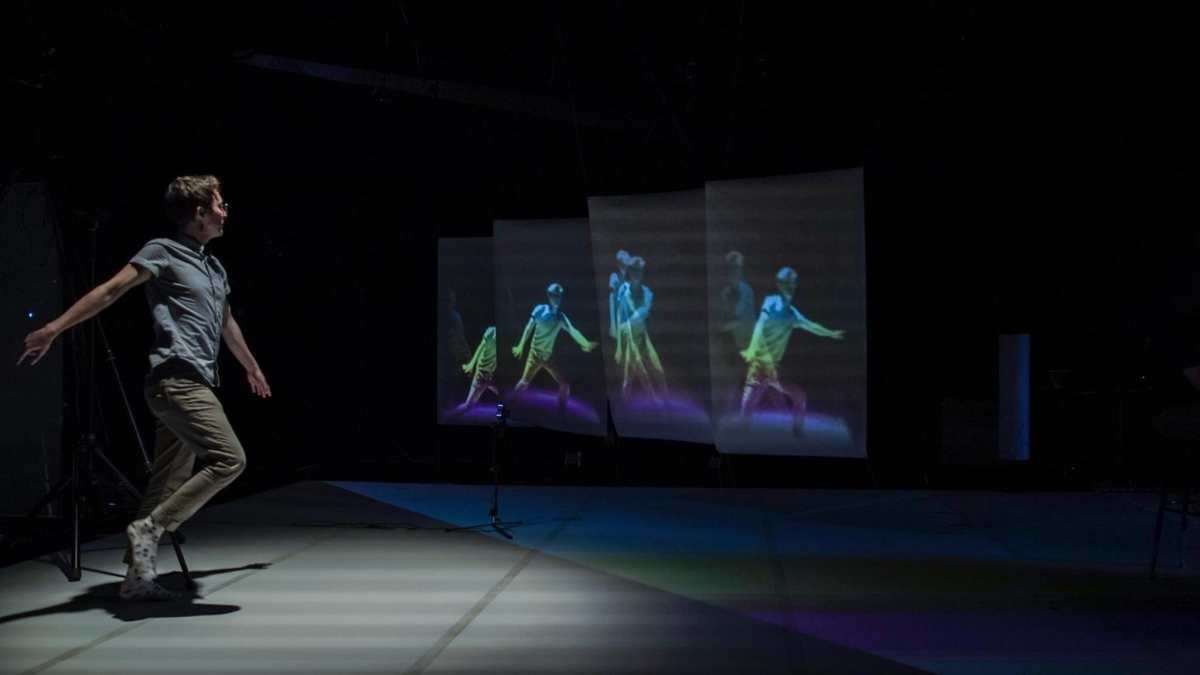
The TEI conference will include a workshop where participants will try their hand at a variety of tangible, embodied and embedded sensing and feedback technologies. Courtesy photo
Researchers from around the world will visit Arizona State University this March to explore cutting-edge research on tangible interactive systems, human-centered design and media art at the ACM International Conference on Tangible, Embedded and Embodied Interaction (TEI).
The conference, which is hosted by the ASU School of Arts, Media and Engineering, provides a forum for exchanging ideas and presenting innovative work. This year’s theme is hybrid materials, and the program covers topics in assistive technology, wearables, biometrics, on-body computing, artificial intelligence and interactive art, as well as critical and theoretical perspectives on these topics.
“TEI is a premier venue for exploring the future of tangible interaction and media art, and for critically reflecting on these trends,” said Stacey Kuznetsov, TEI general chair and assistant professor in the School of Arts, Media and Engineering. “I am excited to bring this conference to Tempe to connect ASU with leading international thinkers from academia and industry, as well as talented early-career researchers working at the forefront of tangible interaction design.”
TEI 2019 includes a four-day program, starting Sunday, March 17, with a series of five studios that engage participants in the concrete making of novel interfaces and interactions. Arts, Media and Engineering’s Synthesis Center will host a TEI Studio on responsive environments at the iStage. Participants will try their hand at a variety of tangible, embodied and embedded sensing and feedback technologies and then compose some ecosystems together. Another studio, Designing Interactive Olfactory Experience in Real Context and Applications, organized by Mei Kei Lai of the School of Arts at Macao Polytechnic Institute and Yan Yan Cao of Keio University, will explore the design of novel olfactory experiences.
The main conference program, which will be held March 18-20, presents the latest results in tangible interaction design through talks, interactive exhibits, demonstrations, posters, art installations and performances. Batya Friedman of the University of Washington will give an opening keynote on the intersection of digital material with human values — in the present and in the longer term, and Carl DiSalvo of the Georgia Institute of Technology will give the closing keynote on how design might participate in alternate forms of living now or in the near present in addition to doing critical and speculative design on work that is future-oriented.
Other represented institutions include Microsoft Research, New York University's Interactive Telecommunications Program, Virginia Tech, Massachusetts Institute of Technology’s Computer Science and Artificial Intelligence Laboratory, MIT Media Lab, Carnegie Mellon University, Eindhoven University of Technology, University of Calgary, Zurich University of the Arts, UC Berkeley and KTH Royal Institute of Technology.
Art and performances at TCA
The conference will also exhibit an Arts and Performance Track at the Tempe Center for the Arts on March 19. The evening will begin with an exhibition of 12 art installations, followed by six live performances exploring hybridity on the TCA Theatre Stage. For instance, art installations will feature sound sculptures by two professors from the University of Art and Design in Linz, Austria.
A team from ASU, led by Jennifer Weiler, Piyum Fernando, Todd Ingalls and Kuznetsov, will present Lithobox: Creative Practice at the Intersection of Craft and Technology. Lithobox is a system that translates the traditional ceramic and lighting technique of lithophanes into a means of creating illuminated 3D models through a creative approach that utilizes both digital and tangible construction. The team worked with artists to explore how the Lithobox fabrication impacted the way artists manifest design ideas and engage in creative exploration in crafting. Following discussions at the conference, they hope to gain insight into beneficial directions for integrating digital technology into traditional fine arts practices.
In one of the live performances, researchers from Texas A&M University and the University of Texas at Austin will present a mixed-reality performance that allows audience members to explore virtual and physical worlds with two dancers. In another live piece, Seth Dominicus Thorn from the School of Arts, Media and Engineering is presenting “Transference,” a hybrid computational system for improvised violin performance that combines hardware sensors, digital signal processing and acoustic input.
The production of TEI’s Arts and Performance track is led by Shahabedin Sagheb and Kimberlee Swisher from the School of Arts, Media and Engineering in collaboration with Luke Kautz, Caroline Fernandez, Daniel Jackson and Peter Weisman.
“TEI is one of the most prominent conferences in the world of hybridizing design, engineering and the art and science of embodied, enactive approaches to experience,” Sha Xin Wei, director of the School of Arts, Media and Engineering, said after ASU was selected as the site for the 2019 conference. “This win is a testament to the team as well as to ASU.”
Recent sites of the conference include Stanford University, Massachusetts Institute of Technology, Keio University in Japan and Stockholm University in Sweden.
Registration is required for the studios and main conference, while the Arts and Performance Track will be open to the public with an admission price. Tickets for the arts and performance events are $10 at the door, with a limited number available online through the TCA website.
For conference details and program schedule, visit tei.acm.org/2019.
The conference is sponsored by the Association for Computing Machinery and supported by the School for the Future of Innovation in Society, Synthesis Center, SANDS (Social and Digital Systems Group), Seeed Studio, the Center for Philosophical Technologies and the Center for Science and the Imagination.
Follow updates from the conference on the TEI Facebook and Instagram accounts.
More Science and technology

ASU receives 3 awards for research critical to national security
Three researchers in the Ira A. Fulton Schools of Engineering at Arizona State University have received grant awards under the …
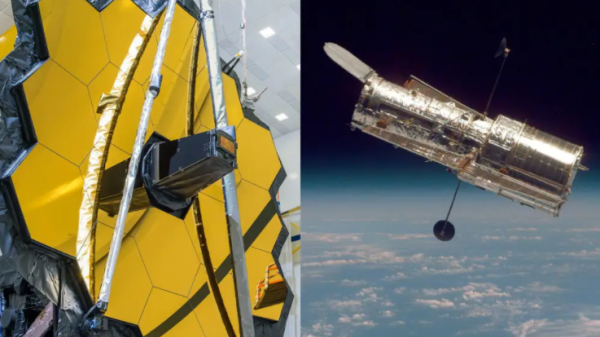
Celebrating 34 years of space discovery with NASA
This year, NASA's Hubble Space Telescope (HST) is celebrating its 34th anniversary of the world's first space-based optical…
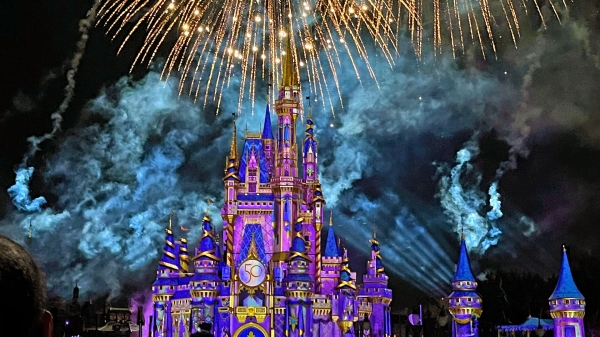
Making magic happen: Engineering and designing theme parks
The themed entertainment industry is widespread and diverse, encompassing everything from theme parks to aquariums, zoos, water…
